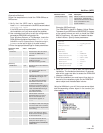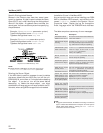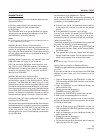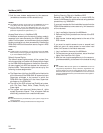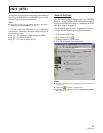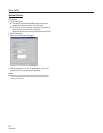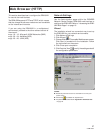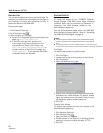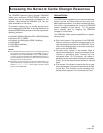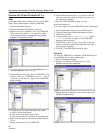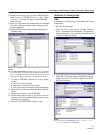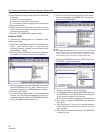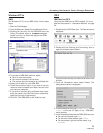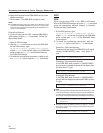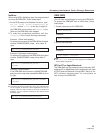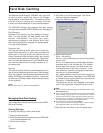
<DRB1239>
29
Accessing the Network Cache Changer Resources
The PIONEER Network Cache Changer DRM-6NX
makes your networked CD/DVD-ROMs available to
anyone who has the appropriate priviledges on the
network. Users access the DRM-6NX just like any
other workstation or file server.
This section explains how to choose access points
when mapping the DRM-6NX. It also describes how to
access the DRM-6NX resources in the following network
operating systems:
÷Windows 95/98 and Windows NT 4.x (SMB, NetWare)
÷Windows NT 3.x (SMB)
÷Windows for Workgroups (SMB, NetWare)
÷OS/2 (SMB)
÷DOS (SMB, NetWare)
÷UNIX (NFS)
NOTES:
7
The examples will assume that you have not changed the default
server name. The default server name is PIONEER<nnnnnn> in
the SMB environment and PIONEER<nnnnnn>_NW in NetWare.
<nnnnnn> are the six last digits of the DRM-6NX serial number. If
you have changed the server name, use the new name where the
examples refer to the default name.
7
Depending on the access rights set up by the Administrator, you
might be prompted to supply a password or receive a message
similar to ‘
Access is denied
’ when trying to access a shared
resource on the DRM-6NX.
Access Points
The DRM-6NX is integrated into your network operating
system just like any other file server thus using the
same acess commands. To be able to access the discs
from within various applications, mount the DRM-6NX
(make it available) to your system. On PC systems
this is typically done by mapping the DRM-6NX
Changer to a drive letter.
The DRM-6NX offers several possibilities to specify
access points:
÷Root level access: If the top level of the DRM-6NX
directory structure is used as the access point, the
user can access all the files on the DRM-6NX. This is
useful for the Administrator, who wants to configure
and monitor the DRM-6NX.
÷Volumes folder access: If the Volumes folder is
used as the access point, the user can access all the
inserted or persistent discs inserted into the
connected drives. On PC systems, this makes it
possible to use one drive letter to access all connected
drives. This is the recommended access for network
users.
÷Disc access: If the folder for a particular disc is used
as the access point, the user can access only the files
on that disc. This is useful or even necessary with
software that expects to find its data at root level.



